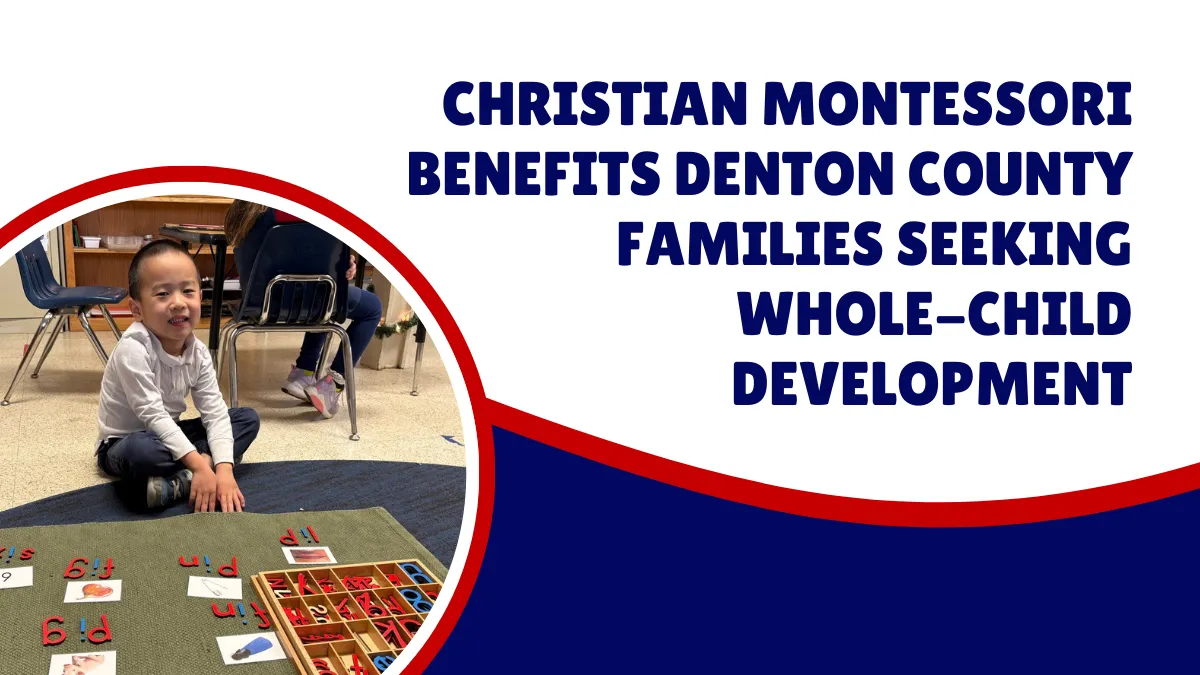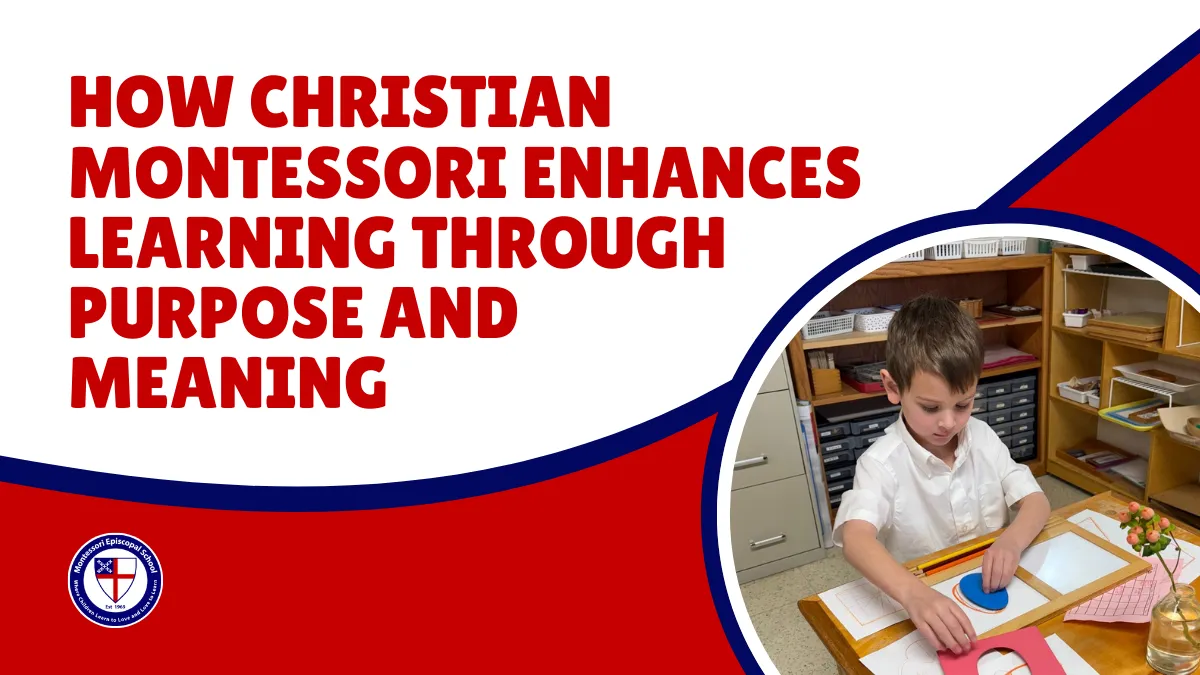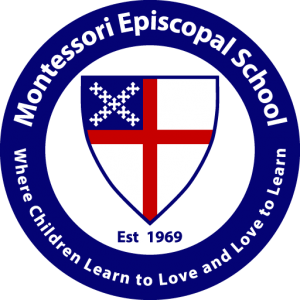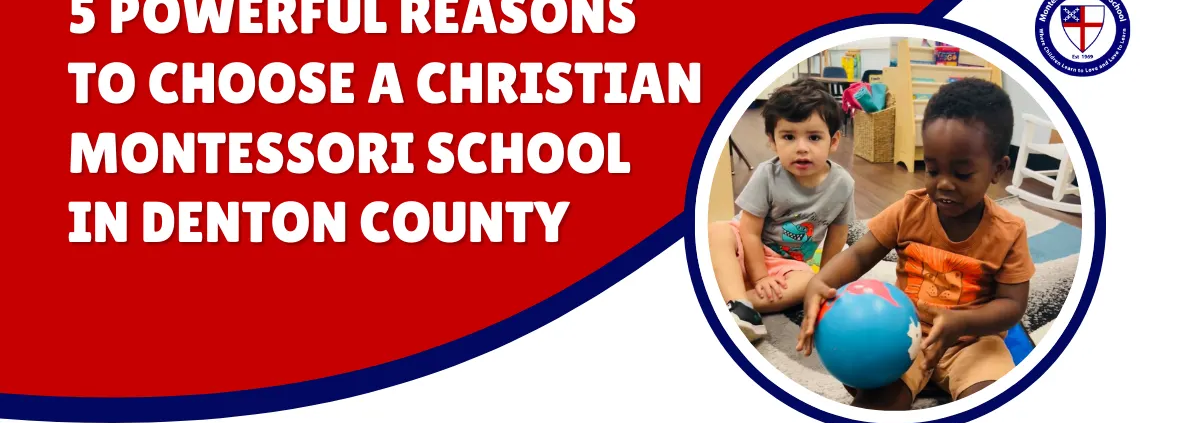5 Powerful Reasons to Choose a Christian Montessori School in Denton County
Choosing the right early education environment is a critical decision for any family. One of the most compelling options for parents seeking a values-based, child-centered approach is a Christian Montessori program. There are several reasons to choose Christian Montessori school models, especially in communities like Denton County, where spiritual formation and academic growth go hand in hand.
These schools integrate faith-based principles with the proven Montessori Method to support the whole child—intellectually, emotionally, socially, and spiritually. With an emphasis on independence, character development, and hands-on learning, Christian Montessori schools provide an enriching environment where young children thrive. The following key benefits highlight why this unique educational path continues to be a trusted choice for families committed to excellence in faith and learning.
1. Christian Montessori Benefits Denton County Families Seeking Whole-Child Development

Christian Montessori schools offer families in Denton County an educational approach that supports the academic, spiritual, emotional, and social development of young children. Grounded in faith and guided by the Montessori Method, this model fosters a learning environment that respects each child’s individuality while encouraging a deep sense of purpose and moral responsibility.
A Balanced Foundation Rooted in Faith and Knowledge
Students benefit from a curriculum that introduces rigorous academic instruction with spiritual growth. This dual focus equips children with strong intellectual skills and a clear moral framework.
- Faith-integrated learning environment: Daily activities and lessons are framed within Christian teachings.
- Hands-on academic engagement: Children explore subjects through self-directed materials that encourage curiosity.
- Daily spiritual reflection: Prayer and scripture readings are part of the classroom rhythm.
- Emphasis on purposeful work: Tasks are designed to build skill and inner discipline.
This balance of spiritual and academic elements creates a learning space where students grow in knowledge and character.
Character Formation Through Christian Values
One of the most defining features of Christian Montessori education is the emphasis on forming character traits that reflect Christian virtues. These values are modeled, practiced, and encouraged in everyday interactions.
- Grace and courtesy instruction: Children are taught to treat others respectfully and kindly.
- Moral decision-making: Students are encouraged to think ethically and take responsibility for their actions.
- Compassion and empathy development: Lessons promote understanding and care for others.
- Service-oriented mindset: Children participate in age-appropriate acts of service.
This intentional character formation supports children as they become responsible, compassionate individuals who value integrity and community.
2. Faith-Based vs Traditional Montessori: Understanding the Key Distinctions
While faith-based and traditional Montessori schools are rooted in Dr. Maria Montessori’s educational philosophy, there are meaningful differences in how these environments shape the learning experience. Families exploring Christian Montessori schools in Denton County often seek an education that combines proven Montessori methods with faith-based values and moral development.
Shared Montessori Foundations
Both models honor the child as an individual and emphasize independence, hands-on learning, and self-discipline. Classrooms are carefully prepared to support exploration, concentration, and intrinsic motivation.
- Child-centered instruction: Both models allow children to progress at their own pace.
- Prepared environments: Classrooms are designed to promote autonomy and focus.
- Mixed-age classrooms: Older students mentor younger peers, building leadership and cooperation.
- Hands-on learning materials: Concepts are taught through tangible, sensory-rich materials.
These shared principles create a nurturing and developmentally appropriate space for learning.
Unique Features of Faith-Based Montessori Education
Christian Montessori programs integrate spiritual development into daily learning, offering a distinct educational experience grounded in faith and moral guidance.
- Spiritual formation: Children participate in prayer, scripture readings, and faith conversations.
- Moral instruction: Biblical teachings support the development of kindness, honesty, and responsibility.
- Faith-based celebrations: Religious holidays and traditions are respectfully observed and explored.
- Integration of Christian worldview: Academic subjects are often connected to spiritual themes.
These elements provide families with a school culture that reinforces their values and encourages children to grow in wisdom and faith. While both educational models uphold the Montessori method, Christian Montessori schools offer a uniquely integrated approach that nurtures the mind, body, and spirit within a consistent moral and spiritual framework.
3. How Christian Montessori Enhances Learning Through Purpose and Meaning

Christian Montessori education offers more than academic instruction—it provides children with a purposeful framework that integrates faith, values, and a love for learning. This approach creates a meaningful educational experience where intellectual development is deeply connected to spiritual growth and moral understanding.
Learning with Intention and Spiritual Connection
In a Christian Montessori environment, children engage in academic work thoughtfully connected to broader themes of purpose and responsibility. Each lesson builds knowledge and fosters reflection, gratitude, and a sense of stewardship.
- Purpose-driven curriculum: Activities are structured to help students see the value of their work for the greater good.
- Faith-informed lessons: Core subjects are taught through a lens encouraging spiritual awareness.
- Responsibility in learning: Children are guided to take ownership of their education with a sense of accountability.
- Daily practices of reflection: Time for prayer and quiet thought is built into the routine.
This intentional structure cultivates an environment where children understand the deeper meaning behind their academic journey.
Moral Development as Part of Academic Growth
Christian Montessori education emphasizes the formation of conscience alongside cognitive skill-building. Moral lessons are not separated from academics but are interwoven into daily instruction and classroom interactions.
- Ethical decision-making: Students are encouraged to consider right and wrong in everyday situations.
- Respect for others and self: Social development is guided by biblical principles of compassion and empathy.
- Intrinsic motivation: Learning is framed as a joyful and respectful pursuit, not merely a task to complete.
- Holistic development: Academic, spiritual, emotional, and social growth are equally prioritized.
Christian Montessori schools ensure that learning is effective and deeply meaningful by uniting moral purpose with educational content.
4. The Lasting Impact of Christian Montessori Education on Child Development
Christian Montessori education fosters long-term growth that extends well beyond early childhood. Addressing the full spectrum of a child’s academic, spiritual, emotional, and social development builds a strong foundation for lifelong learning and personal integrity. The values and skills instilled during these formative years have a profound and lasting influence.
Formation of Character and Inner Discipline
Students in Christian Montessori programs are encouraged to develop a strong moral compass guided by faith and responsibility. Daily routines and classroom expectations promote self-regulation and respect for others.
- Consistent practice of grace and courtesy: Children learn to navigate social instances with empathy and kindness.
- Accountability and responsibility: Students can make choices and learn from them.
- Integrity in action: Biblical values are modeled and reinforced through instruction and example.
- Respect for the learning process: A sense of order and care is cultivated in all classroom areas.
These character-building practices support personal development that carries into adolescence and adulthood.
Academic and Social Readiness for the Future
Christian Montessori education prepares children not only for academic success but also for meaningful inclusion in their communities. The skills gained in this setting contribute to confident, capable learners with strong interpersonal abilities.
- Independence in learning: Children acquire the ability to think critically and solve problems on their own.
- Confidence in communication: Mixed-age environments and small-group work strengthen verbal and social skills.
- Resilience and adaptability: The supportive structure encourages perseverance and flexibility.
- Community awareness: Faith-based service opportunities foster a sense of purpose and contribution.
Christian Montessori education’s lasting outcomes are reflected in intellectually curious, morally grounded students ready to lead with compassion.
5. A Trusted Educational Option for Parents in Denton County
Christian Montessori schools offer a proven model grounded in academic excellence and spiritual development for families in Denton County seeking a high-quality, faith-based early education. This educational approach has earned the trust of parents who value a learning setting that nurtures the whole child while remaining aligned with their values and priorities.
A Reputation for Educational Excellence
Christian Montessori programs are known for fostering deep, meaningful learning through individualized instruction and carefully prepared environments. Students are encouraged to pursue academic growth at their own pace while gaining critical thinking and problem-solving skills.
- Proven Montessori methodology: Students benefit from a structured yet flexible approach to learning.
- Emphasis on mastery: Concepts are introduced hands-on experientially until fully understood.
- Skilled educators: Teachers are trained in both Montessori practices and Christian instruction.
- Supportive classroom culture: Learning occurs in peaceful, focused settings that promote respect and concentration.
This model consistently supports strong academic outcomes and lifelong enthusiasm for learning.
Alignment with Family Values and Community Priorities
In addition to academic achievement, Christian Montessori schools prioritize faith formation, character development, and community involvement. These elements are woven into the school day, reinforcing lessons learned at home.
- Faith-based framework: Children experience Christian teachings as part of their daily learning.
- Shared community values: Families, teachers, and students work together in a spirit of mutual respect.
- Parental involvement: Schools maintain open communication and encourage active family participation.
- Safe and nurturing environment: Students feel secure, respected, and supported in every development aspect.
This alignment builds trust and confidence among parents who seek an educational environment that prepares their children for academic success and moral responsibility.
Conclusion
Choosing the proper early education path is one of the most important decisions a family can make. A Christian Montessori school offers a powerful combination of academic excellence, faith-based guidance, and whole-child development. From fostering moral character and independent thinking to building a lifelong love of learning, this educational model provides lasting benefits for children and families. For parents in Denton County, the Christian Montessori approach represents a trusted, enriching foundation for academic and spiritual growth.
Discover how Montessori Episcopal School can support your child’s future. Visit montessoriepiscopal.com/contact or call (972) 895-9050 to learn more.




Leave a Reply
Want to join the discussion?Feel free to contribute!